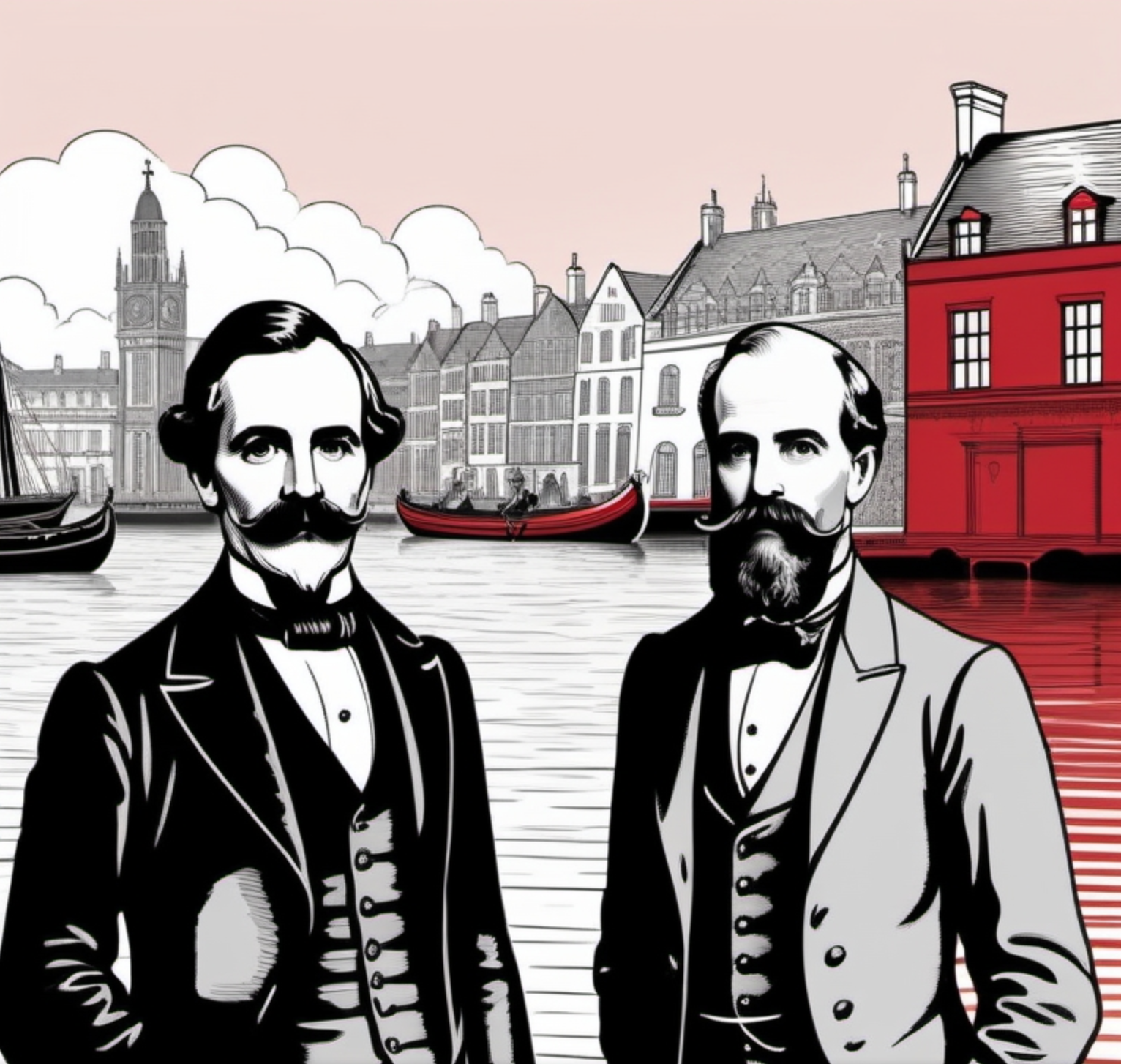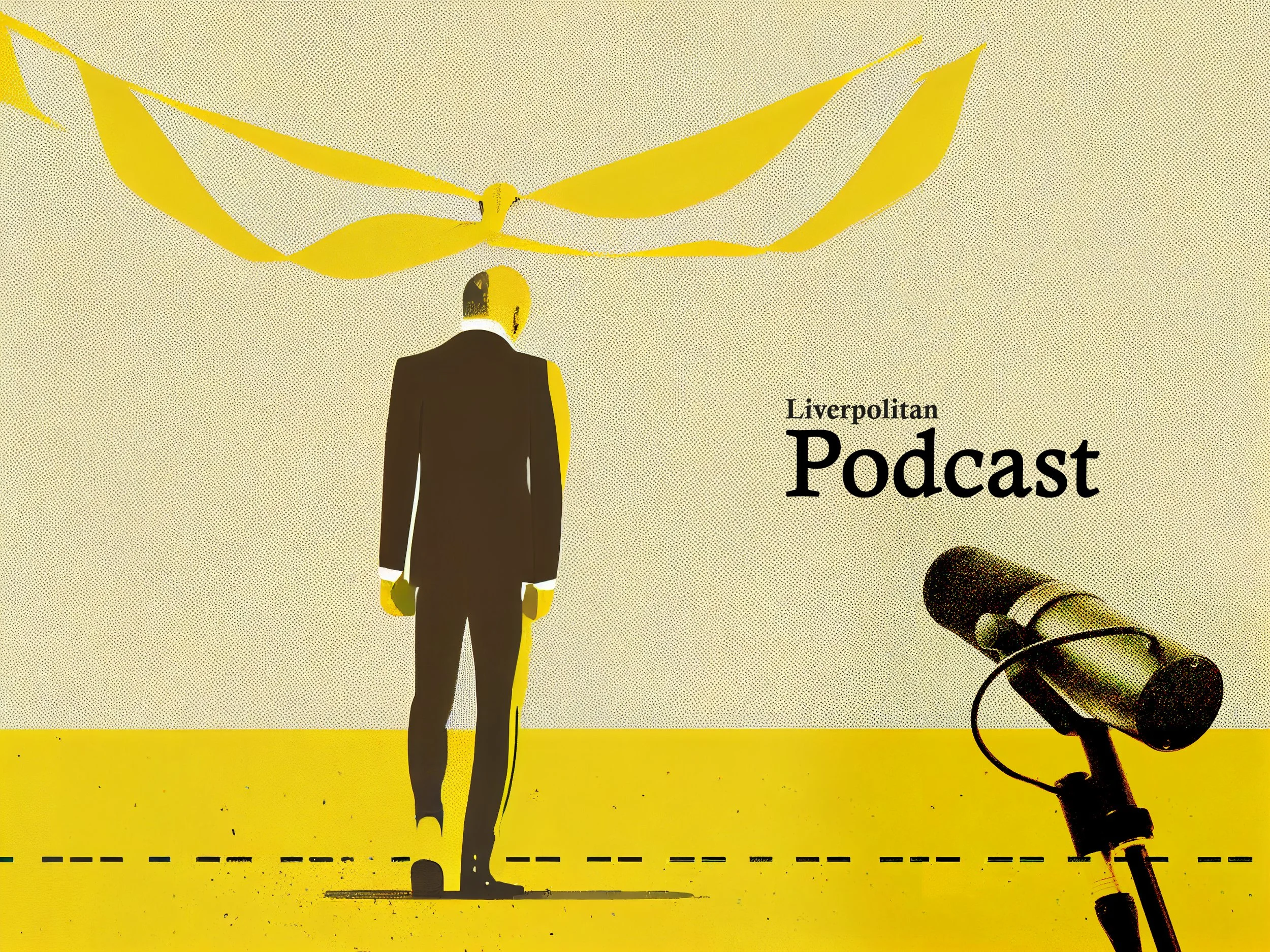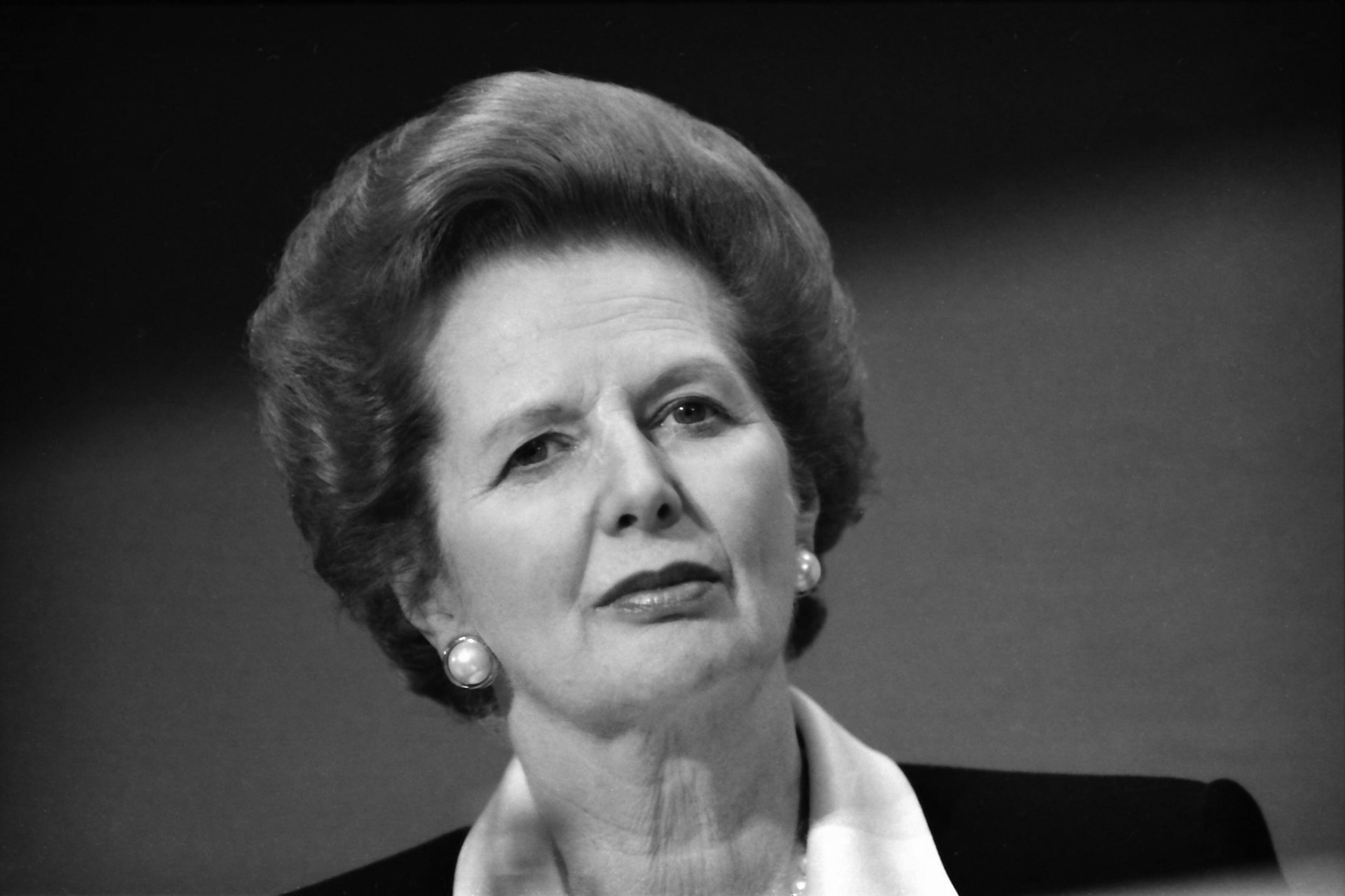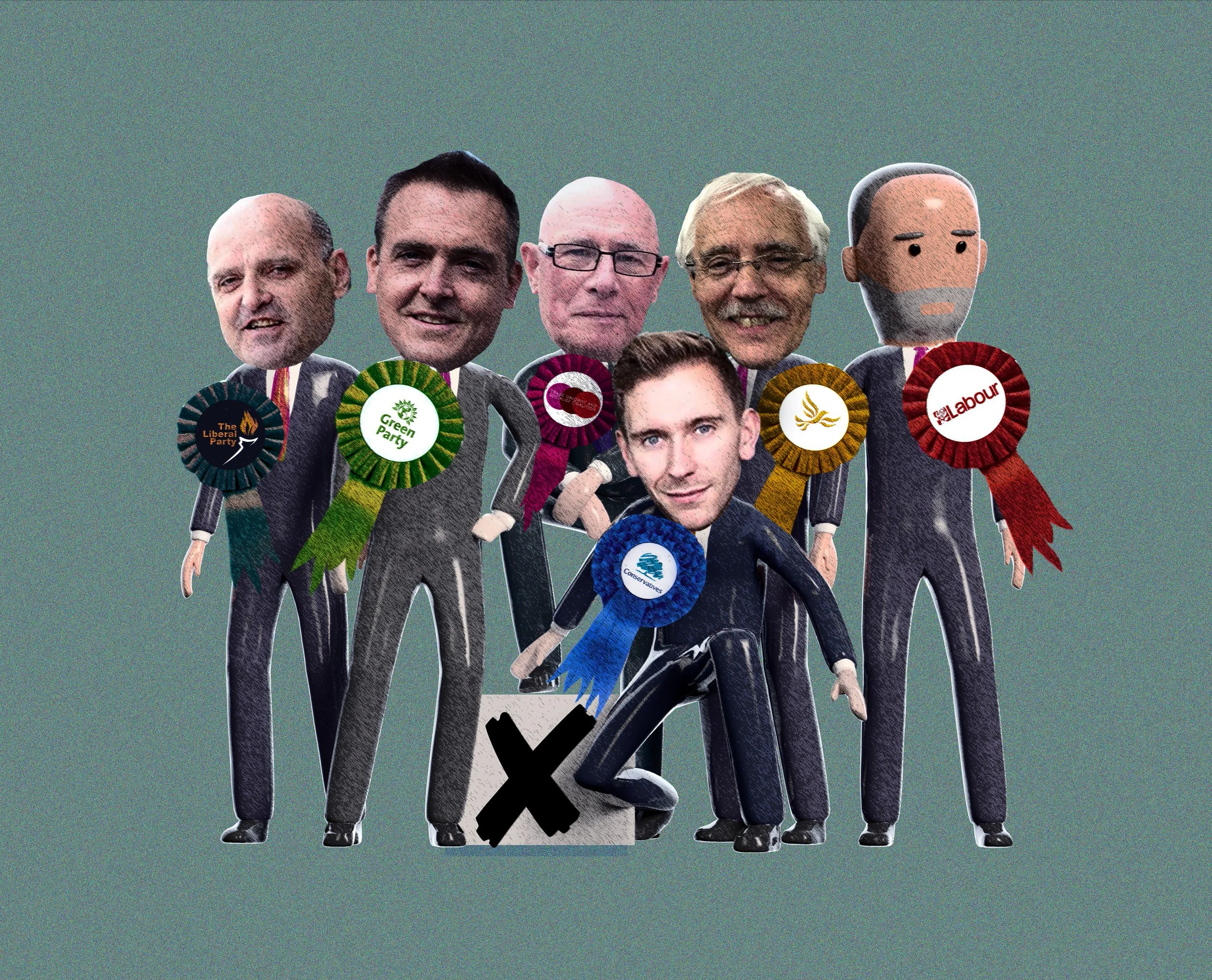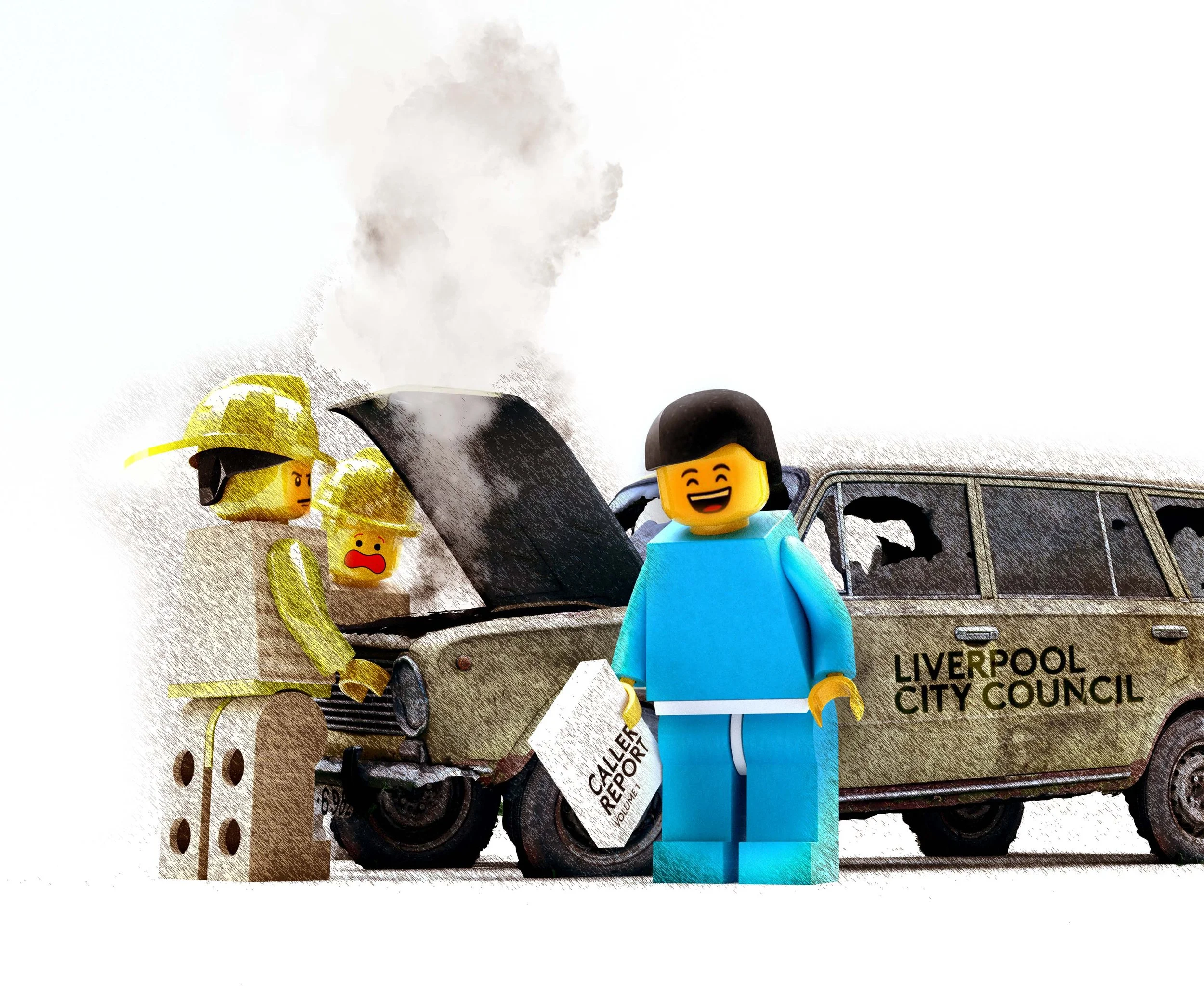Recent features
Devolution Derailed: When trust turns to dust
The breaking of the mayoral promise for a referendum on the way Liverpool is governed will have lasting effects on voter engagement. Trust has not just been lost, it’s been shat on and flushed into the river. But it’s not too late to change tack. Do councillors have the guts and the smarts to change their minds, put self-interest to one side, and give the people what they desperately need?
Matt O’Donoghue
Elected Mayors. Cabinet or Committee. Devolution. Who wants any of it and who really cares? Well, we all do and those who don’t really should. The more say we have over the way we’re governed, and the way we raise and spend our taxes, the better. But what good is having an opinion about how your city or region is run, if your voice is only listened to but never heard?
A proper referendum – not a ‘consultation’ on just the Mayoral Model – but one that gives the citizens a real choice in how they are governed is what the political nihilists of Liverpool need. Encourage them to step away from the edge, to stop blaming the Tories and their Commissioners, or Joe Anderson and his cronies, and let the people take control of their future.
The current debate over an elected Mayor for Liverpool, and who should have the final say, has more than the malodorous whiff of déjà vu. We could have hot-wired the flux capacitor and jumped into the Doc’s DeLorean to step back to the future of the Cunard’s Council Chambers circa 2012 and barely noticed the difference. Many of the same faces are there. Just as Joe’s army of acolytes did, back when he was Labour Leader of the ruling party, so Joanne Anderson and today’s elected members appear to have snatched the option to choose how their city will be governed from the fingers of its citizens. The best you can say is that it took the current Mayor until January 26th - that’s ten months - to break her manifesto pledge and her media promises for a referendum.
Accusations of ‘betrayal’ and ‘u-turn’ by Mayor Joanne Anderson on this issue, however true they may be, are as pointless as the consultation that her passed amendment is likely to deliver. The binary ‘yes’ or ‘no’ choice that the citizens are likely to get is an exercise that’s estimated to cost £120,000 and will not be legally binding. It serves to appease and to distract. At its core this is about far more than whether to elect a City Mayor. This is about popular engagement and allowing the people to finally have their say over how their city is run; Mayor with a Cabinet, Cabinet and Leader, or Leader and Committee. And it obviously scares them to give the people a choice because our councillors appear to be doing everything they can to make sure this doesn’t happen. Again.
Amid smokescreen-claims that the estimated costs of any full referendum would be £450,000, the Mayor’s post-election pledge that she could be trusted to deliver a legally binding vote have been turned to ashes. As one council insider put it;
“She really should have looked under the bonnet before she promised to put the car back on the road.”
But the importance of a push towards a re-engagement with politics and how the Liverpool City Region’s capital is governed cannot be underestimated. The people of Liverpool deserve this much after being taken for granted, and for fools for so many years. Trust has not just been lost, it’s been shat on and flushed into the river. Never have the people of Liverpool felt more disillusioned with - and more distanced from - those they elect.
When Manchester voters were handed their referendum they chose to reject Mayoral and Cabinet governance and to stick with the Committee system, led until recently by Labour’s Sir Richard Leese. In this city, Labour holds 94 of the 96 seats. Of course, we still ended up with the ‘King of The North’, Greater Manchester Mayor Andy Burnham imposed upon us from above. But in terms of the city authority, we never missed what we never had, a spare Mayor to push the city’s interests. But at least we had our say through a referendum and the people were engaged with the political process. They said ‘no’ in a way that had to heard.
Trust has not just been lost, it’s been shat on and flushed into the river.
When it came to Greater Manchester’s Mayor, like Liverpool, the toy came without instructions. Our two great cities and our regions were political petri dishes. This was Call-Me-Dave Cameron’s experiment in devolved democracy and we just had to get on with things as best we could. But both experiments have had disastrous consequences because transparency and accountability have become an ‘inconvenience’ in the dash towards devolution. I spent the last decade as a journalist exposing the effects of these slippery standards in integrity and investigating the statutory failures of governance and oversight that got us here, in Liverpool and Greater Manchester.
In Greater Manchester, the Mayor was handed the Policing and Crime Commissioner’s duties. Where once we had a monthly Police Committee made up from elected members with statutory powers of oversight and audit responsibilities over the country’s second largest constabulary, now we have Baroness Beverley Hughes who was appointed by Andy Burnham. Oversight has slipped and with it transparency, leaving the Fourth Estate (the media) and its journalists to hold the police to account for their failings and to expose the devastating effects on individuals.
Perhaps Greater Manchester Police was too complicated or contentious for the new office to deal with? Whatever the reasons, we now have a new computer control system that’s possibly £80 million over budget - we can’t find out for sure because the Mayor’s office has refused to answer the Freedom of Information requests - and it still doesn’t work more than two years after it was switched on. It’s likely that the Integrated Police Operational System - or iOPS - will soon be binned. Tens of thousands of victims have not received justice because their crimes have been ‘lost’ and tens of millions that should have been spent on front line policing has been blown on consultants and a computer that says ‘no’. What’s certain is that the Police Committee, whose meetings I used to attend, would have publicly asked the questions of the Chief Constable that could have halted this slow-motion car-crash and this disaster may have been averted before the damage was done. Instead, we had complicit cronies of the Chief who covered up his failings. Those who should have held him to account either didn’t see, or chose to look the other way. Sounds familiar?!
One telling difference between our two regions is the excellent job that The Manchester Evening News and the fearless Jennifer Williams did to investigate and hold authorities to account. If only The Liverpool Echo had been so diligent, rather than acting as if they were a branch of Joe Anderson’s official communications team for so many years, perhaps then the rocks would have been turned over much earlier.
Despite continual warnings from whistleblowers and the stories from those brave journalists who fought to give voice to their claims of cronyism and coverup, it took two years for the ‘King’ to kick his Chief Constable to the kerb. This only happened after an investigation by Her Majesty’s Inspectorate of Constabularies which exposed all the truths that we had broadcast and published. Finally, GMP was placed into ‘enhanced special measures’. This was the first time a police force had been found out to be operating so poorly. Andy Burnham’s nose was rubbed in it by authorities higher than himself, before he admitted that he could smell the stench and cleared the air. The best you can say is that Andy Burnham’s wilful ignorance was born of his desire to be liked and to avoid conflict - little comfort for the countless victims of rape or assault who never saw an officer because his computer kept crashing, meaning the crime was never investigated. Even so, ‘The King’ was re-elected in 2021 with 67% of the vote.
Transparency and accountability have become an ‘inconvenience’ in the dash towards devolution.
Look to Liverpool and we see a familiar pattern; an overwhelming political majority for Labour and an elected Mayor with the powers that were once held by Committee members, now in the hands of one person. The similar failings in oversight, transparency and accountability that allowed Greater Manchester Police to spiral out of control, and the same lack of integrity in those elected to serve our best interests, have brought Liverpool to the brink of financial ruin and political shame. This complete failure of the devolution experiment and the democratic governance that was supposed to hold the Mayor to account has delivered - ‘The Commissioners’, plus a former Mayor and his officers who are ‘released under investigation’, and a financial black hole the auditors say gets bigger by the day. But please don’t let them use this to fool you into thinking ‘Mayor-Bad’, ‘Leader-Good’.
The shift to elected Mayor delivered the adoption of the “Cabinet Model” of Governance creating new Committees for Regeneration, Communities, Education and more besides. These Cabinets are chaired by Leads who sit with their members, to consider and vote on the issues before them. As their reward, all Lead Members receive a top-up, or ‘Special Responsibility Allowance’ of around £13,000 on top of the £10,500 they receive as a councillor. And they are appointed by the Mayor.
The power of patronage means it pays well to stay close to “Big Joe” and “Joanne”. Under this style of constitution the idea of “delegated responsibility”, that always existed, is focused on the Mayor and their Cabinet Leads. They can choose to vest the authority they have to approve matters under consideration into the hands of Departmental Directors. In theory, this should make the resolution of difficult matters much quicker. For example, urgent business deals can be dealt with before they collapse. In practice, it has meant schemes like the Tarmacademy were railroaded through council without the proper scrutiny.
By a deft sleight of hand and before the end of 2015, the only two committees that were asking difficult questions about policies and performance - The Mayoral Select Committee, and The Overview and Scrutiny Committee, were ‘disappeared’. Mayor Joe Anderson left oversight and transparency in his wake with barely a look over his shoulder. Even so, in 2016 the voters of Liverpool still returned Mayor Joe for a second term on a reduced majority of 52%. But inside the Labour Party mutiny loomed on the horizon.
On the eve of the 2019 local elections, Joe Anderson’s own former Deputy Mayor, Anne O’Byrne, wrote her mutinous clarion call for rebellion and change. Under the flag, “Why Liverpool needs to return to a Leader and Cabinet Model”, she posted her assault on a system in which she had once been key.
“We’ve done a lot of things well (since we swept to power in 2010), however over the past few years the whole of the city has seen the problems of the Mayoral model being too centralised, adopting a Presidential style of decision making.”
Councillor O’Byrne continued her Trumpian-takedown of the way her boss did business.
“The current mayoral model insulates the Mayor from criticism. A Mayor does not hold surgeries, report regularly to the Labour Party branch and does not represent a ward that would ground them in the issues people raise on a daily basis.”
The mayoral structure, according to his one-time deputy, insulated him in an ivory tower and away from all the problems and concerns of his councillors and the electorate who voted for him.
In doing away with the position of Leader of the Council and in concentrating all power in the hands of an elected Mayor, Joe Anderson may have hoped the new system would be more dynamic, with faster decision making. He was to be the boss and his close-knit ‘gang’ would get the job done. But while listening to and communicating with councillors and communities may take a bit more time, Councillor O’Byrne wryly remarked, “It means you make better decisions for everybody and not just a selected few.”
As the electorate of Liverpool prepared to cast their 2019 votes, the Deputy Leader of the Labour Party saved her most devastating lines for last;
One telling difference between our regions is the excellent job that The Manchester Evening News did to hold authorities to account. If only The Liverpool Echo had been so diligent.
“The Mayoral model lends itself to meetings with developers, investors, Whitehall mandarins and Tory ministers in order to have a top down approach to developing the city. The people of the city have no role other than voting for the Mayor once every four years. The rest of the time they are seen as obstacles to development, not integral to the process of inclusive growth.”
Councillor O’Byrne’s depth charge was still making waves as the Labour Councillor for Knotty Ash, Harry Doyle, looked forward to working with and speaking up for his residents. In a ward once famous as the home of the comedian Ken Dodd, Councillor Doyle was more likely to be concerned with the community legacy of Liverpool Football Club’s former training ground, Melwood, than looking for a fight with the man now known as ‘Big Joe’.
Yet less than a week after the count, a leaked email chain exposed Councillor Doyle’s true feelings about his life inside Liverpool Council. “During my induction day last year, a council officer advised new councillors that 95% of decisions are made by the Mayor,” he wrote. “This is a figure that baffled me as it made me wonder what role we backbenchers have to play in policy formation.” In his leaked emails, Doyle echoes the sentiments of the former Deputy Mayor, from her night-of-the-election tweet. He wrote “It centres all of our decision-making around one person, and some decisions are not made clear to us until they’re made clear to the public via the press.”
Is it any wonder that the people who’ve watched their city carved up and sold off on the cheap have begun to abandon hope for change and trust in those they elected to deliver a better life? ‘They’re in it for themselves’ or ‘they can’t do a thing’ becomes ‘my vote makes no difference’ and soon gives way to ‘what do I care?’. And once that wall is built between the people and their politicians and it becomes unscalable, who will rise up to knock it down? The Infidels? Militant? Extreme disaffection can feed extreme politics. Councillors, be careful what you vote for.
As a proud woolly-backed Lancastrian and adopted Mancunian, married into Old Swan heritage, I believe the affairs of both cities bookending the western stretch of the M62 are important to our mutual understanding and growth. Only those who’ve breathed life in the Liverpool City Region or in Greater Manchester can truly begin to know what’s going on here, and what needs to be done in the best interests of the people whose lives and jobs reside here. Well, that assumes the people in charge actually have the best interests of their electorate held closest to their hearts… rather than their own careers, or those of the businesses and individuals of influence who drip poison in their ears.
From Corbett and Conception, to Kemp and Crone; the elected representatives of Liverpool still have the chance to unite. Mayor Joanne Anderson, must jump down from that conveniently climbed fence and make a difference for those citizens who feel their trust has been misplaced. It is they who must shoulder much of the blame for what has passed and the political embarrassment that Liverpool became. Their wards elected them to serve, and instead they passed motions that concentrated powers and blinkered oversight. They cancelled the Committees that created accountability, and set up Cabinets led by cronies. And when their constituents came with complaints about the scam developments blighting their neighbourhoods, or the Cabinets rubber stamped back-door-disposals of the city’s Crown Jewels, they found they were powerless to stop things, or too late to change them. Now is their chance to consult, to listen to those voices calling for respect.
The practice and custom of a one-size-fits-all set of policies that are dictated from a Westminster and London-centric government just doesn’t work for any of us any more. Our regions are individual and different and only a federation working together and towards the common national good can be the right way to go. This country’s regions have their own characteristics, their own needs and their own strengths. You can’t properly understand a place unless you’ve lived, loved and listened to its citizens. And heard what they have to say. To deny a ‘proper’ referendum – in favour of some ‘Mayoral Choice’ - is so much more than a sacrifice of the alternative. In a city where the councillors barely have a grip on costs, let alone appreciate values, what price to encourage engagement with ‘democracy’ and to deliver on a promise?
Matt O’Donoghue is an investigative reporter who has worked for the BBC and ITV including Granada Reports and Newsnight. He is a previous winner of the O2 Broadcast Journalist of the Year, ITV Correspondent of the Year and has won numerous awards from the Royal Television Society.



